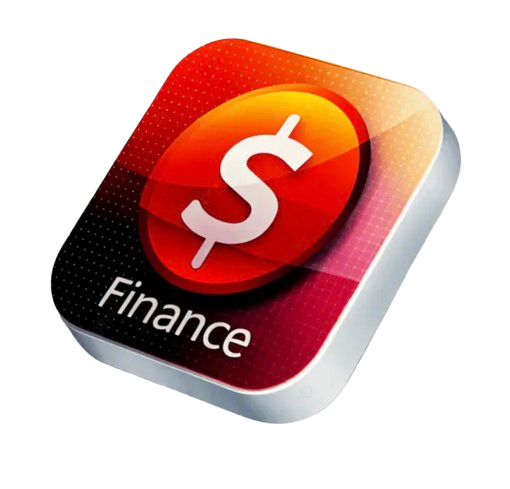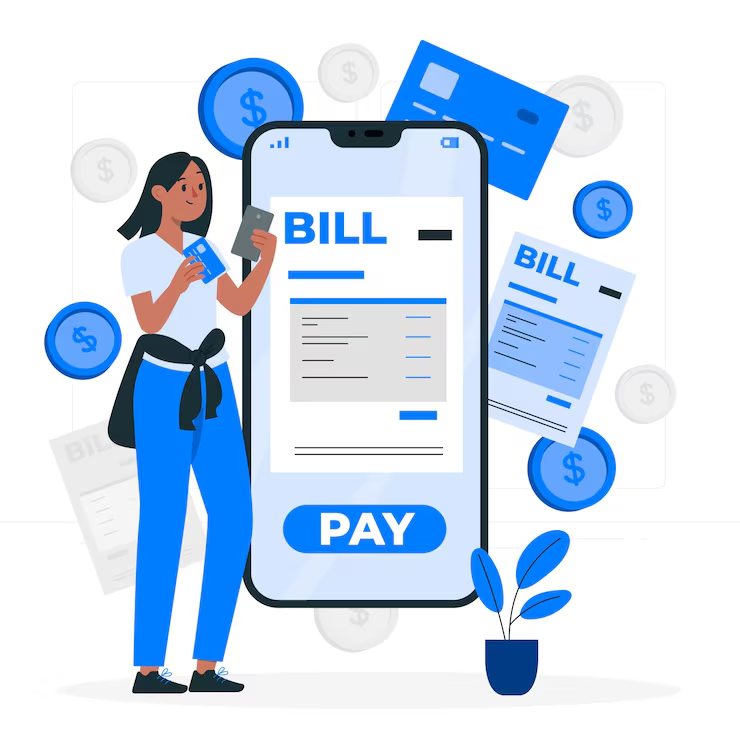Picture this: you’re jamming to your favorite playlist when suddenly your phone starts acting weird. Apps are crashing, your battery drains faster than water through a sieve, and you notice strange charges on your credit card. Sound familiar? Unfortunately, this nightmare scenario happens more often than you’d think when users download sketchy music streaming apps without doing their homework first.
The music streaming landscape has exploded over the past few years, but not all platforms prioritize your digital safety. With cyber threats evolving faster than your favorite artist drops new tracks, choosing secure music streaming platforms has become more crucial than ever before.
Why Music App Security Should Be Your Top Priority
Gone are the days when the biggest worry was whether your favorite song would buffer during the best part. Today’s music streaming applications handle sensitive personal information, payment details, and behavioral data that hackers find incredibly valuable.
When choosing a secure music streaming app in 2025, it’s important to look for platforms that offer encrypted connections, verified content, and proper licensing. This not only protects your personal data but also ensures that the music you listen to is authentic and free from piracy issues. Fans who are waiting for the latest Bollywood releases, such as Baaghi 4, also prefer apps that guarantee original soundtracks without the risk of leaks or fake uploads. By using trusted apps, you can enjoy upcoming songs from big movies while keeping your privacy and device security intact.
Think about it – your streaming app knows your location, music preferences, listening habits, and often has access to your contacts and storage. That’s a goldmine of information in the wrong hands.
The Hidden Dangers of Unsecured Streaming Platforms
Most people focus solely on music quality and library size when choosing streaming services. However, unsafe music apps can expose you to malware, identity theft, and unauthorized access to your personal accounts.
Recent security breaches in the entertainment industry have shown that even established platforms aren’t immune to attacks. The difference lies in how they handle security measures and respond to threats.
Essential Security Features to Look For
End-to-End Encryption and Data Protection
The first thing you should check is whether the app uses proper encryption protocols. Legitimate streaming services encrypt your data both in transit and at rest, making it nearly impossible for cybercriminals to intercept your information.
Look for apps that clearly state their encryption standards in their privacy policy. If they’re being vague or avoiding the topic altogether, that’s a red flag waving frantically in your face.
Two-Factor Authentication Options
Any respectable music streaming service should offer two-factor authentication (2FA) as an additional security layer. This feature ensures that even if someone gets hold of your password, they still can’t access your account without the second verification step.
The best platforms make this process seamless, often integrating with authenticator apps or sending verification codes via SMS or email.
Privacy Controls and Data Management
Premium streaming services give you control over your data. They should allow you to see what information they collect, how they use it, and provide options to delete or modify your data when needed.
Transparency is key here. Companies that care about your privacy will make their data practices crystal clear, not bury them in 50 pages of legal jargon.
Red Flags: Warning Signs of Potentially Dangerous Apps
Suspicious Permission Requests
If a music app asks for permission to access your camera, microphone, contacts, or SMS messages without a clear reason, run the other way. Legitimate streaming apps typically only need access to storage, network connectivity, and sometimes location services for regional content.
Free music streaming apps that request excessive permissions are often more interested in harvesting your data than providing quality entertainment.
Poor App Store Ratings and Reviews
Don’t just look at the star rating – dive into the actual reviews. Pay special attention to recent comments mentioning security issues, unexpected charges, or suspicious app behavior.
Apps with consistently poor ratings or reviews mentioning malware, data breaches, or privacy violations should be avoided at all costs.
Lack of Official Company Information
Legitimate streaming services have clear company information, official websites, and customer support channels. If you can’t find basic information about who’s behind the app, consider it a major warning sign.
The absence of contact information or vague company details often indicates you’re dealing with a potentially malicious application.
Top Secure Music Streaming Platforms in 2025
Spotify: Industry Leader in Security
Spotify continues to set the standard for music streaming security with robust encryption, regular security updates, and comprehensive privacy controls. Their security team actively monitors for threats and responds quickly to potential vulnerabilities.
The platform offers detailed privacy settings, allowing users to control data sharing and advertising preferences. Plus, their two-factor authentication system is straightforward and reliable.
Apple Music: Privacy-First Approach
Apple’s commitment to user privacy extends to Apple Music, which benefits from the company’s strong security infrastructure. The service uses advanced encryption and doesn’t build advertising profiles based on your music listening habits.
Their integration with Apple’s ecosystem means you get additional security features like biometric authentication and secure payment processing through Apple Pay.
Amazon Music: Enterprise-Level Security
Amazon Music leverages Amazon Web Services’ enterprise-grade security infrastructure, providing users with bank-level data protection. The platform regularly undergoes security audits and maintains strict data handling protocols.
Their multi-layered security approach includes encrypted streaming, secure payment processing, and robust account protection features.
YouTube Music: Google’s Security Backbone
As part of Google’s ecosystem, YouTube Music benefits from the tech giant’s extensive security resources and threat detection capabilities. The platform uses machine learning to identify and prevent security threats in real-time.
Google’s transparency reports and regular security updates demonstrate their commitment to protecting user data and privacy.
How to Evaluate New and Lesser-Known Streaming Services
Research the Parent Company
Before downloading any music streaming app, research the company behind it. Look for established businesses with good reputations and clear privacy policies. Check if they have other successful apps or services in their portfolio.
Companies with a track record of respecting user privacy are more likely to maintain secure streaming platforms.
Check Security Certifications
Look for security certifications like SOC 2, ISO 27001, or similar industry standards. These certifications indicate that the company follows established security best practices and undergoes regular audits.
While not all small companies have these certifications, their presence is a strong indicator of serious security commitment.
Test with Limited Information
If you decide to try a new service, start by providing minimal personal information. Use a separate email address if possible, and avoid linking social media accounts or providing unnecessary personal details.
Monitor your accounts closely for any unusual activity after signing up for new streaming services.
Best Practices for Safe Music Streaming
Keep Your Apps Updated
Always download updates when they become available. Security patches are often included in these updates, protecting you from newly discovered vulnerabilities.
Enable automatic updates if possible, so you don’t have to worry about manually checking for new versions.
Use Strong, Unique Passwords
Create unique passwords for each streaming service you use. Password managers can help you generate and store complex passwords without the hassle of remembering them all.
Never reuse passwords across multiple platforms, especially for services that store payment information.
Monitor Your Account Activity
Regularly check your account activity for any unusual behavior. Most legitimate streaming services provide activity logs showing recent logins, device connections, and account changes.
Set up account notifications to alert you of suspicious activity, such as logins from new devices or changes to your subscription.
Secure Your Payment Methods
Consider using virtual credit cards or payment services like PayPal for music subscriptions. This adds an extra layer of protection between the streaming service and your primary bank account.
Remove stored payment information from services you no longer use, and regularly review your subscription list.
Understanding Privacy Policies and Terms of Service
Key Sections to Focus On
Don’t skip reading privacy policies entirely, but focus on key sections that explain data collection, sharing practices, and your rights as a user. Look for clear explanations of what data they collect and why.
Pay attention to sections about data sharing with third parties and how long they retain your information.
Your Rights as a Consumer
Most legitimate streaming services operating in major markets must comply with privacy regulations like GDPR or CCPA. These laws give you specific rights regarding your personal data.
Understand your right to access, modify, or delete your data, and know how to exercise these rights if needed.
Mobile vs. Desktop Security Considerations
Mobile App Security Features
Mobile apps often have additional security features like biometric authentication and app-specific PINs. Take advantage of these features when available, as they provide extra protection against unauthorized access.
Be cautious about downloading music apps from unofficial app stores, as these often lack proper security screening.
Desktop Application Safety
Desktop applications should be downloaded only from official websites or verified app stores. Avoid third-party download sites that may bundle malware with legitimate software.
Keep your operating system updated, as this helps protect against security vulnerabilities that malicious apps might exploit.
The Future of Music Streaming Security
Emerging Threats and Solutions
As music streaming becomes more sophisticated, so do the threats targeting these platforms. Expect to see enhanced AI-powered security measures and more stringent verification processes in the coming years.
Blockchain technology may also play a role in securing user data and ensuring transparent, tamper-proof transaction records.
Industry Standards Evolution
The music streaming industry is moving toward standardized security protocols and better data protection practices. This means consumers can expect higher baseline security standards across all major platforms.
Regular security audits and transparency reports are becoming more common, giving users better insight into how their data is protected.
Frequently Asked Questions
What makes a music streaming app secure?
A secure music streaming app should use end-to-end encryption, offer two-factor authentication, have clear privacy policies, and regularly update their security measures. The app should only request necessary permissions and come from a reputable company with transparent business practices.
Are free music streaming apps safe to use?
Free music streaming apps can be safe if they come from established companies like Spotify (free tier) or YouTube Music. However, be wary of unknown free apps that may compromise security for profit. Always research the company and read user reviews before downloading.
How can I tell if my music streaming app has been compromised?
Signs of a compromised music app include unusual battery drain, unexpected data usage, strange app behavior, unauthorized account changes, or suspicious charges. If you notice any of these signs, immediately change your passwords and contact customer support.
Should I use the same password for multiple streaming services?
Never use the same password across multiple streaming services. Each platform should have a unique, strong password. Consider using a password manager to generate and store complex passwords securely for each service you use.
What should I do if I accidentally downloaded a malicious music app?
If you suspect you’ve downloaded a malicious music app, immediately uninstall it, run a security scan on your device, change passwords for all your accounts, and monitor your financial statements for unauthorized charges. Consider contacting your bank if you provided payment information.
Protecting Your Musical Journey
Choosing secure music streaming apps doesn’t have to be overwhelming. By focusing on established platforms with strong security track records, reading privacy policies, and following basic digital safety practices, you can enjoy your favorite tunes without worrying about your personal information.
Remember that security is an ongoing process, not a one-time decision. Stay informed about new threats and regularly review your streaming app choices. Your future self will thank you for taking these precautions today.
The world of music streaming continues to evolve, bringing us better sound quality, larger libraries, and more personalized experiences. By prioritizing security alongside entertainment value, you’re ensuring that your musical journey remains both enjoyable and safe for years to come./isolated-segment.html















